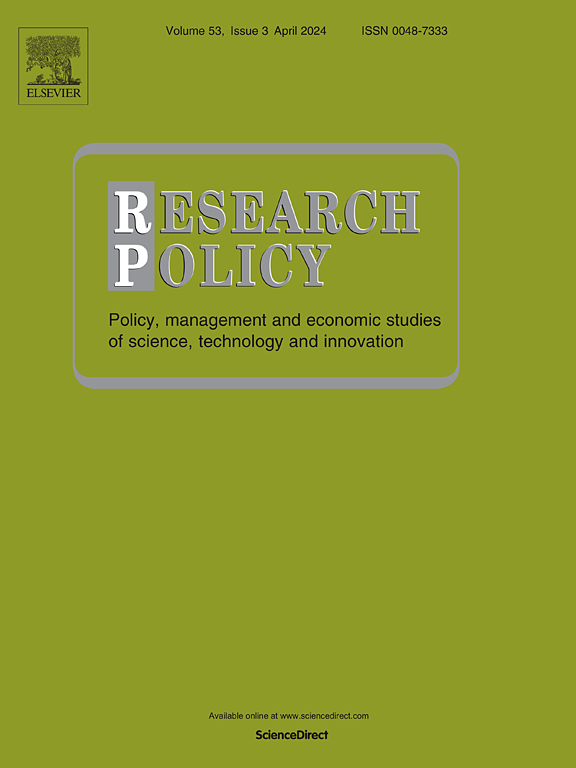Gender diversity in academic entrepreneurship: Social impact motives and the NSF I-corps program
IF 7.5
1区 管理学
Q1 MANAGEMENT
引用次数: 0
Abstract
This study examines gender differences in the social impact and commercial motives for academic entrepreneurship using the National Science Foundation's Innovation Corps (NSF I-Corps) program. I-Corps provides experiential entrepreneurship training to faculty and graduate student researchers at local I-Corps university sites and through a nationwide program. Since the inception of I-Corps, only 20 % of participants have been women. We first use survey data from one I-Corps university site to show that women had higher social entrepreneurial intentions compared to commercial entrepreneurial intentions, and their social entrepreneurial intentions were higher than men's. We then extend and generalize this finding by analyzing 1267 publicly available project summaries from the National I-Corps Program from 2011 to 2019. We find that women PIs' project proposals emphasized social impact significantly more than men, while projects for all PIs emphasized commercial impact to a similar degree. We next ran a field experiment to estimate the causal impact of social impact vs. commercial motives by experimentally manipulating the recruitment email messages inviting researchers to participate in the I-Corps training program. We find that women were more likely to show interest in a social impact version of a message compared to a commercial version, while men showed equal interest in both types of messages. Taken together, our results indicate that women are more interested in pursuing commercialization and entrepreneurship activities when they are tackling societal problems. They suggest that low-cost interventions that emphasize the social impact value of entrepreneurial opportunities may increase gender diversity in entrepreneurship activities.
求助全文
约1分钟内获得全文
求助全文
来源期刊

Research Policy
MANAGEMENT-
CiteScore
12.80
自引率
6.90%
发文量
182
期刊介绍:
Research Policy (RP) articles explore the interaction between innovation, technology, or research, and economic, social, political, and organizational processes, both empirically and theoretically. All RP papers are expected to provide insights with implications for policy or management.
Research Policy (RP) is a multidisciplinary journal focused on analyzing, understanding, and effectively addressing the challenges posed by innovation, technology, R&D, and science. This includes activities related to knowledge creation, diffusion, acquisition, and exploitation in the form of new or improved products, processes, or services, across economic, policy, management, organizational, and environmental dimensions.
 求助内容:
求助内容: 应助结果提醒方式:
应助结果提醒方式:


